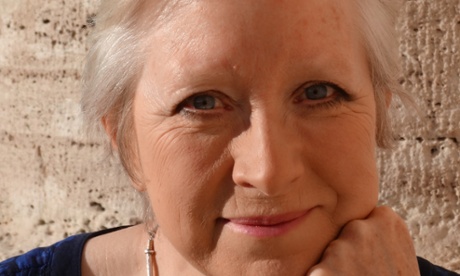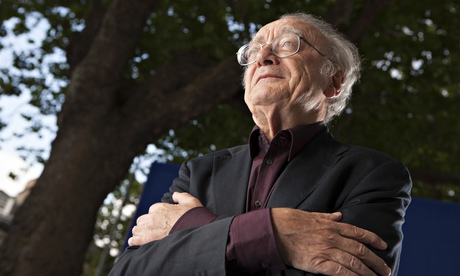Pianist Susan Tomes has devoted her career largely to chamber music – a niche market within the niche market of classical music, and one in which she has achieved a singularly high reputation as an executive musician. The first group of which she was a long-term member, in the 1980s, was Domus, an unconventional outfit that gave concerts in a geodesic dome that had to be set up by the players wherever they performed: the aim and advantage of this 200-seater portable concert hall was that it allowed them to take the piano quartet repertoire to far-flung corners that would never normally be able to encounter it live. Domus lasted 15 years, during which it won two Gramophone awards. In 1995 Tomes moved on to become the founder-pianist of the Florestan Trio, a more conventional piano trio that made numerous recordings and won prestigious awards before calling it a day in 2012 after 17 years at the top end of the market.
Tomes has also pursued a second career as a writer, and this, her fourth book, consists of 16 essays in which she discusses music in general and chamber music in particular, essentially from the point of view of the performer. In it, she is able to give concert-goers an idea of how performers operate when not actually playing in front of an audience; and though her commitment to the music she loves – “long-form music”, she calls it, as distinct from pop songs – is undimmed, hers is a far from rosy view of the lives of musicians in chamber groups.
She begins her longest essay, “Enigma Variations”, for instance, with the story of how a friend in a well-known string quartet told her that members of chamber groups often grow to hate one another: she mentions “infamous tales of world-renowned groups whose members won’t travel on the same planes as one another, or stay in the same hotel”. Non-musicians, she says, are regularly shocked by this, given that chamber music relies on the most intimate musical connections between a small number of performers over a sustained period; though these are, of course, the very conditions that might eventually breed resentment.
For groups operating without an agent, admin can be a problem: it often devolves to one unlucky individual. Tomes was approached at a recent careers advice seminar for young professional musicians by a viola player who felt inundated by the time taken up with issues such as “rehearsal at the venue, stage lighting, music stands, artists’ biographies and photographs … guest tickets, piano tuning, page turner, overnight accommodation, food … programme notes” – and that’s not even to get started on the complex and subtle art of fee negotiation.
Tomes had an unprivileged upbringing in Edinburgh, and in “Giving People Memories” she describes her early training as a musician and her attendance, every Friday night, at the Royal Scottish National Orchestra’s regular concerts at the Usher Hall. Her own musical memory must have been extraordinary – works that she heard once in concert went into some sort of aural memory bank and stayed there “until something evoked a phrase from that piece and I found that, like pulling on the loose end of a ball of wool, I could follow it right to the end”.
Yet even then, as she recalls in “Light and Heavy”, she was encountering notions of classical music as elitist. She mentions fellow pupils referring to “snobby classical music”, and one saying: “You think you’re so posh, just because you can play the piano.” Tomes became worried even as a teenager that classical music was feared or resented by quite a few people. Now sensing “a rising tide of antagonism towards so-called ‘elitist’ music”, she blames “a background of neglect of music in school education”; the result, she fears, is that a type of music “is being slowly pushed into the margins. The music hasn’t changed, but society seems to be looking the other way.”
Tomes, mind you, has other tastes herself – she lists Bob Dylan, Simon and Garfunkel, the Beach Boys, Carole King, James Taylor, Stevie Wonder, Nina Simone and Janis Joplin as among her teenage enthusiasms. Most evenings when she’s at home she listens to jazz. She spent a semester at the New England Conservatory studying with the African-American jazz pianist Jaki Byard, and in the early 1980s was a young jazz musician of the year. In the field of light music proper, she has received more letters about her playing of pieces by the pianist of the Savoy Havana Band in the 1920s, Billy Mayerl, than on any other topic.
Yet her professional focus has been the classical duo and chamber repertory, and she has been inspired by some remarkable people, among them the Hungarian violinist and teacher Sándor Végh, whom she first encountered at the International Musicians Seminar at Prussia Cove in Cornwall in the late 1970s, and whom she remembers with a mixture of humour and deep affection in “Old People”.
Her title refers to an ancient Greek practice whereby individuals would sleep in temples to incubate dreams and so help them to interpret life. For Tomes, it has been Bach, Mozart, Beethoven and Schubert who have provided the sacred texts whose “individual notes can feel like words of truth”, yet in this wide-ranging collection she considers in some depth not only matters of pianism and artistic interpretation but also the practical issues, large and small, that performing musicians grapple with every day of their working lives.
• To order Sleeping in Temples for £15.99 go to bookshop.theguardian.com or call 0330 333 6846.











